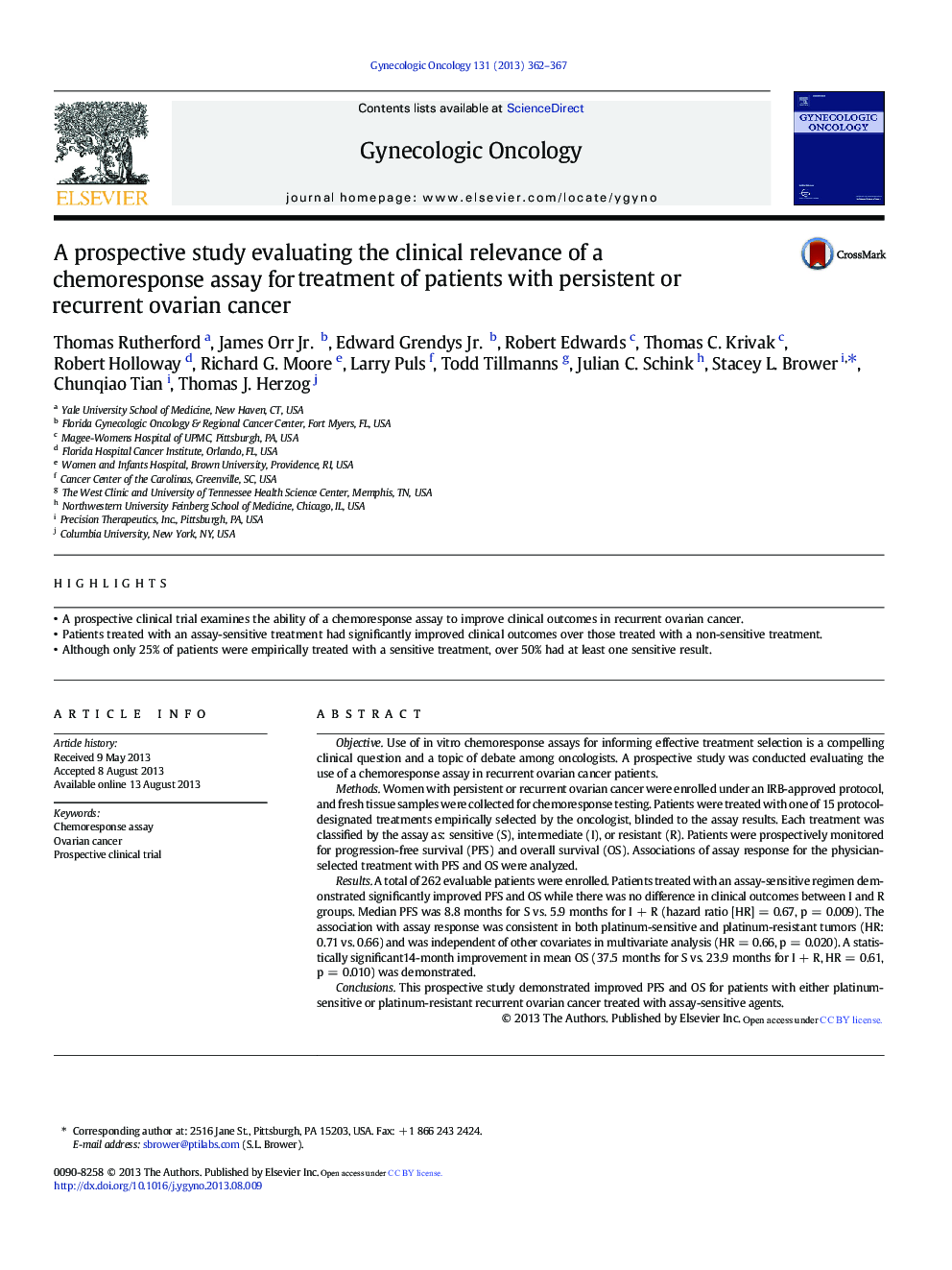| کد مقاله | کد نشریه | سال انتشار | مقاله انگلیسی | نسخه تمام متن |
|---|---|---|---|---|
| 6183650 | 1254111 | 2013 | 6 صفحه PDF | دانلود رایگان |
• A prospective clinical trial examines the ability of a chemoresponse assay to improve clinical outcomes in recurrent ovarian cancer.
• Patients treated with an assay-sensitive treatment had significantly improved clinical outcomes over those treated with a non-sensitive treatment.
• Although only 25% of patients were empirically treated with a sensitive treatment, over 50% had at least one sensitive result.
ObjectiveUse of in vitro chemoresponse assays for informing effective treatment selection is a compelling clinical question and a topic of debate among oncologists. A prospective study was conducted evaluating the use of a chemoresponse assay in recurrent ovarian cancer patients.MethodsWomen with persistent or recurrent ovarian cancer were enrolled under an IRB-approved protocol, and fresh tissue samples were collected for chemoresponse testing. Patients were treated with one of 15 protocol-designated treatments empirically selected by the oncologist, blinded to the assay results. Each treatment was classified by the assay as: sensitive (S), intermediate (I), or resistant (R). Patients were prospectively monitored for progression-free survival (PFS) and overall survival (OS). Associations of assay response for the physician-selected treatment with PFS and OS were analyzed.ResultsA total of 262 evaluable patients were enrolled. Patients treated with an assay-sensitive regimen demonstrated significantly improved PFS and OS while there was no difference in clinical outcomes between I and R groups. Median PFS was 8.8 months for S vs. 5.9 months for I + R (hazard ratio [HR] = 0.67, p = 0.009). The association with assay response was consistent in both platinum-sensitive and platinum-resistant tumors (HR: 0.71 vs. 0.66) and was independent of other covariates in multivariate analysis (HR = 0.66, p = 0.020). A statistically significant14-month improvement in mean OS (37.5 months for S vs. 23.9 months for I + R, HR = 0.61, p = 0.010) was demonstrated.ConclusionsThis prospective study demonstrated improved PFS and OS for patients with either platinum-sensitive or platinum-resistant recurrent ovarian cancer treated with assay-sensitive agents.
Journal: Gynecologic Oncology - Volume 131, Issue 2, November 2013, Pages 362–367
